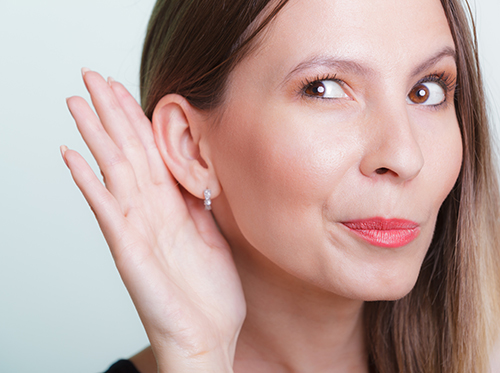May 19th, 2021

If you have been bringing your baby in for regular checkups since that first tooth arrived, you might expect that he or she is already familiar with Dr. Pamela Clark and our staff. Often, though, months pass between visits, which is a very long time for a child. How can you make your preschooler’s return visit a happy one? We have some suggestions!
Before Your Visit
- Prepare your child for her visit. Simple explanations are best for a young child. You might tell your daughter that a dentist is a doctor who helps keep her teeth strong and healthy. Let her know a bit about what will happen. Being told, “You will sit in a special chair,” or, “Can you open wide so we can count your teeth?” will give her some idea of what it’s like to visit our office.
- There are many entertaining books for young children about visiting the dentist. Reading some of these to her for a few days before the appointment will let her know what to expect.
- Use playtime to prepare. You might count your daughter’s teeth or let her “play dentist” and brush the teeth of her favorite doll or stuffed animal.
When You Arrive
- Your attitude can be contagious! If you treat a visit to the dentist like any other outing, chances are your child will too. Your calm presence is exactly what your child needs.
- You might want to come a bit early to let your son explore the office. Bring a favorite toy or book to keep him entertained if you need to. A favorite stuffed toy can be a comfort in an unfamiliar place.
- If you are with your child during his checkup, follow our lead. Don’t be concerned if your child seems uncooperative at first or even throws a tantrum—we are used to working with children, and have techniques to make his experience as relaxed and as positive as we possibly can.
We Are Here to Help
We are your partners in your child’s dental care. Call our Pearland, TX office anytime for suggestions about making your child’s visit a comfortable, comforting experience. Our goal is to start your child confidently on the road to a lifetime of empowering dental visits and lasting dental health.
May 12th, 2021

Your opinions matter to Dr. Pamela Clark and our team! Our blog is meant to be an educational channel, but we always want to know what things you’re interested in learning more about. After all, our blog is here for you to enjoy!
We’d like to encourage you to send us any ideas about what you want to see more of. No idea is too small! Whether it involves a specific treatment or advice on what kind of toothpaste you should use, we’d love to hear from you about it.
To share your thoughts with us, simply leave your comments below or on our Facebook page! You can also fill out a comment card the next time you visit our Pearland, TX office!
May 5th, 2021

The merry month of May also happens to be National Fitness and Sports Month, so take advantage of the warmer days to get outside and exercise! Bringing a friend, family member, or coworker with you when you go for a brisk walk during a lunch break can provide an opportunity to socialize as well as health benefits. If you need a little more motivation, here are some good reasons to stay active and fit.
Exercise provides:
- Improved stamina and energy as well as toned muscles and bone strength and density
- Improved circulation and breathing for a healthier heart and lungs
- Reduced risk for Type 2 diabetes and certain forms of cancer
- For older adults, regular exercise may help improve balance and reduce the risk of falls as well as improved cognitive abilities
Children and Teens
Children and teenagers spend long hours at their desks in school, on the computer, watching television, and involved in other sedentary activities that result in obesity and poor health later in life. Getting them engaged in school or community sports teams can help them form good life-long exercise habits. One important note: If they are participating in contact sports, Dr. Pamela Clark and our team at Pearland Pediatric Dentistry recommend your kids wear an approved mouthguard to protect those valuable teeth from injury! Ask us for a proper fitting of your safety appliance during your next visit!
A gym membership is nice but not necessary to stay fit; try these easy ways to work some exercise into your daily routine.
At Home
- Take a friend along for company on a walk through your neighborhood.
- Pursue gardening or other yard work, including mowing or raking.
- Take your kids on a bike ride or have them push a baby stroller around the block.
Couch potatoes take note: simply moving from the sofa to the floor for some sit-ups, leg-lifts, or push-ups while you’re watching television can help you get in better shape in no time.
At Work
- Take the stairs instead of the elevator.
- Take exercise breaks for walks around the building or parking lot.
- Walk or ride a bike to work.
So what are you waiting for? Get moving!
For more information on exercise techniques, or to schedule an appointment with Dr. Pamela Clark, please give us a call at our convenient Pearland, TX office!
April 28th, 2021

It’s common for children to suck their thumb at a young age. Dr. Pamela Clark and our team want you to understand the potential issues that can surface down the road if the habit isn’t broken early on.
It’s normal for infants to explore the function of their mouths by putting objects like their thumbs inside it. You shouldn’t be concerned if your baby regularly sucks his or her thumb. For infants who are still growing their baby teeth, thumb sucking can help with stimulating growth and development of their baby teeth.
Thumb sucking is not a problem among infants because they generally do it to sooth and comfort themselves. Problems can occur of kids continue the habit when their baby teeth begin to fall out, around six years of age.
If you have a young child whose adult teeth are starting to come in, that’s when thumb sucking can start to be a problem. Most children stop thumb sucking between the ages of two and three years. According to the American Dental Association, if thumb sucking continues as adult teeth come in, this can lead to problems involving improper alignment of teeth and growth of the jaw, gums, and roof of the mouth.
It may also affect your child’s speech after that, by causing a lisp or other speech impediments. As a parent, you may need to begin to regulate and intervene if thumb sucking starts to become a bigger problem for your child.
How to Stop Thumb Sucking
- Provide comfort to your child if thumb sucking happens when he or she is anxious.
- Limit thumb sucking initially to bedtime or naptime.
- Employ positive reinforcement for good behavior.
- Talk with your child about the potential problems that come from this habit.
- Distract your son or daughter with activities such as fun games any time you notice it starting.
- Involve your little one in choosing methods for stopping, like positive rewards.
- Have Dr. Pamela Clark talk to your child to reinforce concerns about thumb sucking.
Don’t forget that thumb sucking is a common habit that many children indulge in, and it should not be a concern right away. If you’re worried about your child’s thumb-sucking habit, start to address the issue as soon as possible.
The above techniques can help to reduce the amount of time your child sucks a thumb. Dr. Pamela Clark and our team are here to help you if you have any questions or concerns about this habit.
Feel free to call our Pearland, TX office and we will be happy to help you and your child.








